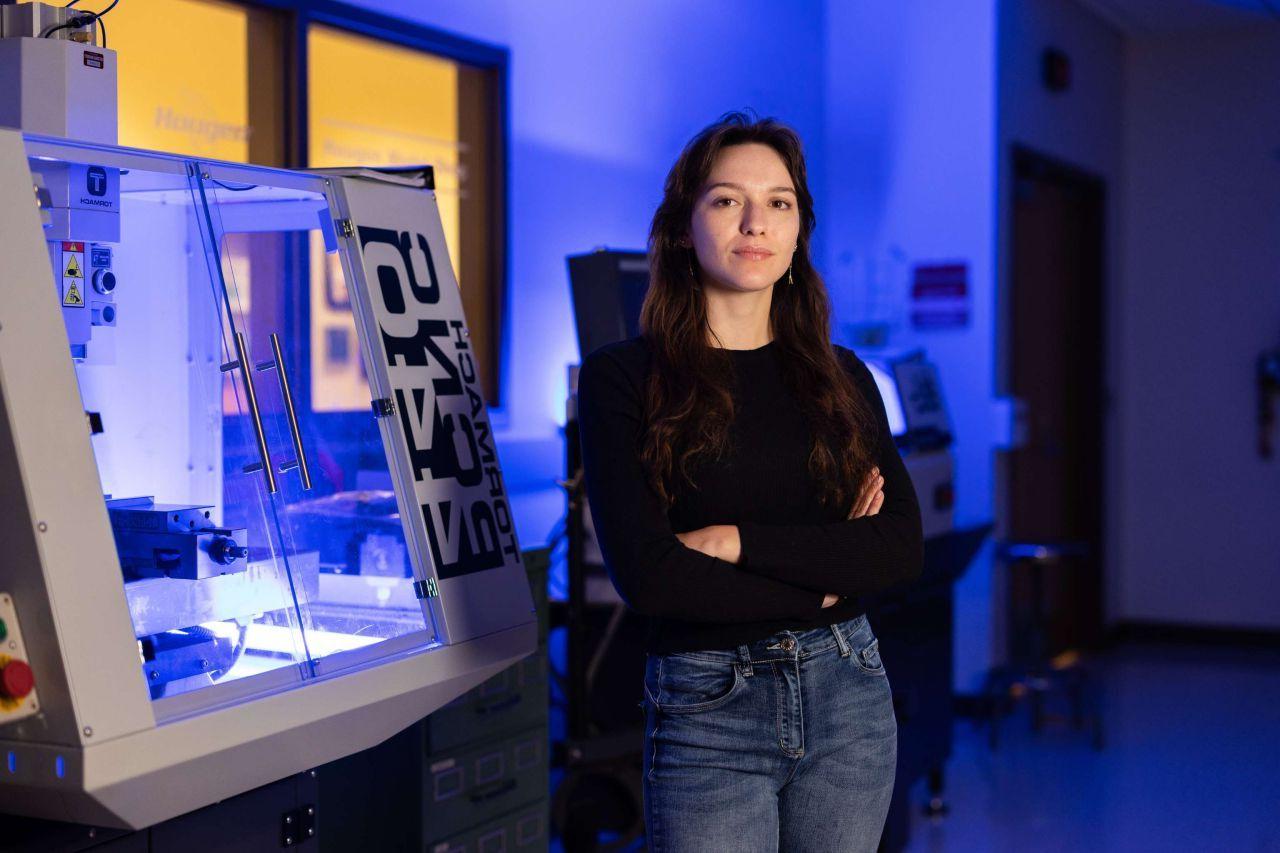Master of Science: Electrical Engineering
Request Information
Additional Information About the M.S.E. in Electrical Engineering
The U.S. Bureau of Labor Statistics projects a 9 percent growth in electrical and electronics engineering jobs through 2033 — much faster than the average for all occupations. With an M.S.E. in Electrical Engineering, you'll be ready for management roles in mobility and new energy vehicle sectors.
Many of our alumni secure high-level technical positions or pursue MBAs to enhance their leadership potential. Others continue their research in prestigious Ph.D. programs.
Work alongside pioneering professors in advanced labs, contributing to real-world breakthroughs in their field. Our research facilities include:
Put your knowledge to the test on student teams dedicated to building and racing electric vehicles. You can push the boundaries of battery technology or tackle autonomous vehicle challenges. These teams offer hands-on experience, networking opportunities, and skill-building in real-world environments.
Financial support is available for qualified M.S.E. in Electrical Engineering students through tuition waivers or stipends. Graduate assistantships may require up to 20 hours of work per week as a research, teaching, or staff assistant, depending on the level of support. For more information, please contact the Graduate School at gsr@egyptawe.com.
Want a more flexible option for your master’s degree in electrical engineering? Explore our 100% online M.S.E. in Electrical & Computer Engineering-Advanced Mobility.
Complete your degree in as few as 24 months while gaining cutting-edge expertise in electric and autonomous vehicles, mobile robotics, and other dynamic systems. This program is the first of its kind and is designed for professionals ready to lead in the advanced mobility space.
About the Online M.Eng. in Electrical & Computer Engineering-Advanced Mobility
Related Events
Next Steps
Elevate your career in the rapidly evolving fields of electrical engineering, mobility, and energy systems with Kettering University’s Master of Science in Engineering: Electrical Engineering.


